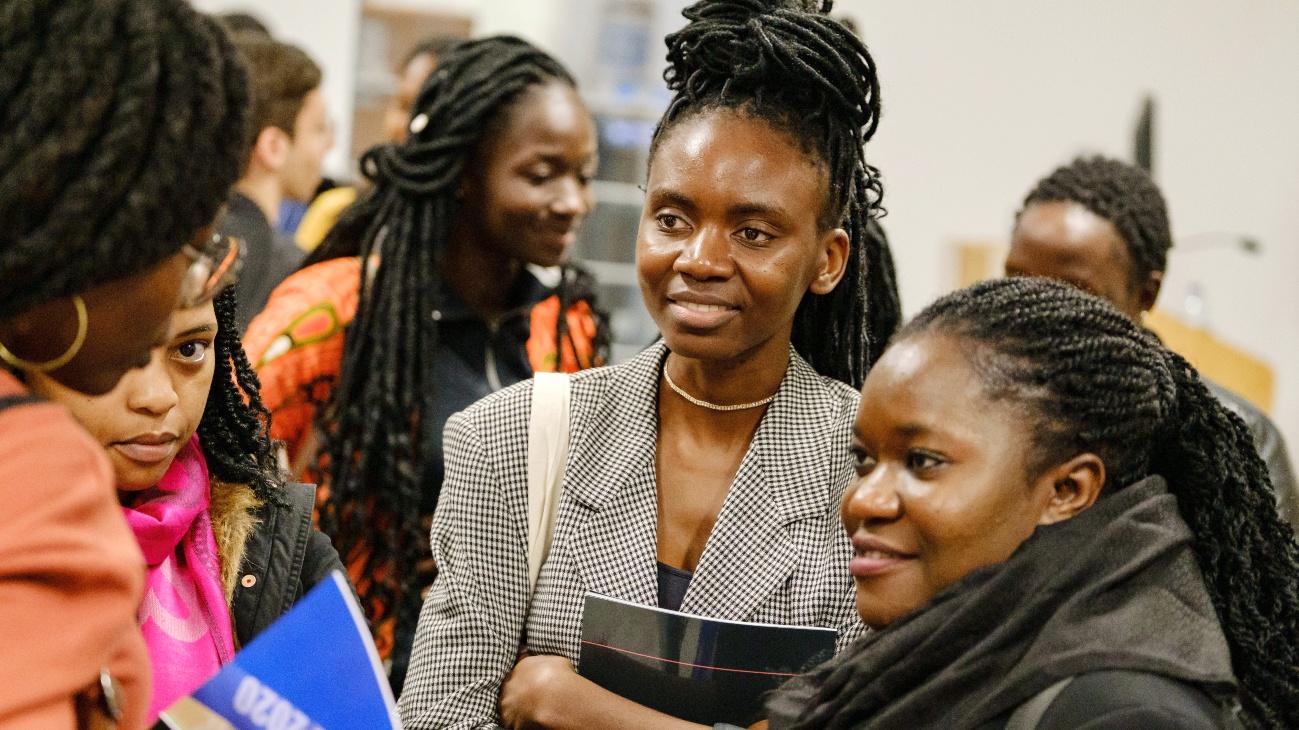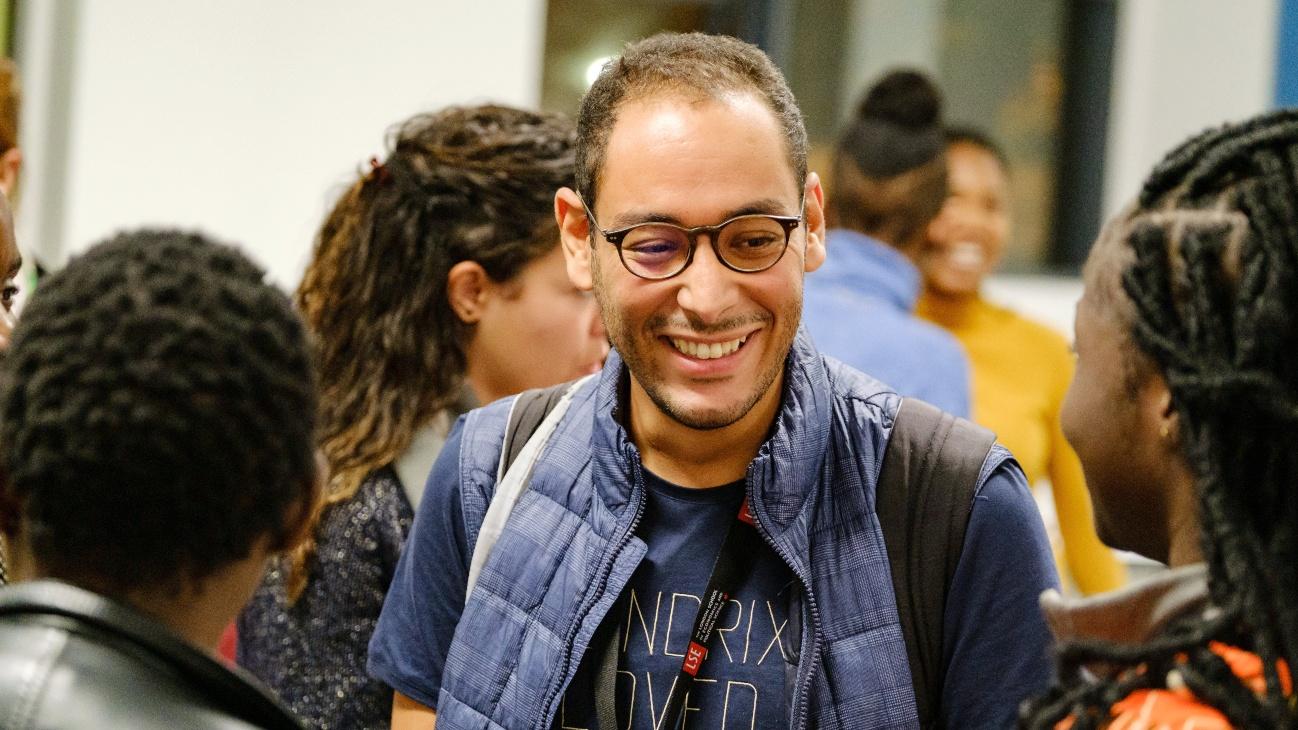As African university graduates enter the African job market there are key skills and strategies they should use to appeal to potential employers. An awareness of these strategies is particularly important in the continent’s increasingly competitive and constantly changing terrain. Based on real-world experience and industry expertise, we provide advice for current students and recent graduates.
This post is the fourth in the series Pathways to Success for Africans in Higher Education, bringing awareness to the journey that African nationals experience when navigating tertiary education, and its importance for the continent’s development.
In recent years, there are growing conversations around the ‘unemployment crisis’ on the African continent, especially among the fast growing youth population. The UN Economic Commission for Africa notes that $79 billion of potential revenue is lost annually as a result of youth unemployment. Countries like South Africa have some of the highest youth unemployment rates in the world with 58% of young people age 15-24 not in work or educational training. In Africa’s most populous nation, Nigeria, 55% of people are unemployed or underemployed. With the African youth population set to double to 830 million by 2050, the African Development Bank predicts that 50% of African youth, excluding students, will be unemployed and economically inactive by 2025 if no steps are taken to address this issue. It is estimated that around 18 million new jobs need to be created annually to provide for the youth entering into the labour market in Africa, while 3 million are currently being created. This also does not include the potential impact that the coronavirus will have on the African market.
However, this is not the whole story. Many African nations have taken significant steps to address these issues, investing in the future of work and making room for new markets to emerge. Efforts have been made to protect the continent’s economic future in response to the coronavirus pandemic and initiatives have been put in place to create new jobs for youth. New skills are also in demand from African employers beyond mere technical expertise, and for recent university graduates it is important they position themselves strategically in order to be successful in this competitive market. This is especially important for African students who have studied abroad and who aspire to careers on their home continent.
Transitioning into the African job market
As an African university graduate transitions into the African job market, there are important factors to consider which can help this process. The first factor is the importance of building different types of networks.
Networks
University networks: Universities often have plenty of networking events and career fairs, sometimes involving international organisations and multinational companies with offices across Africa. Make the most of these events to build your contact base. Join student groups or start your own in your areas of interest. Speak to alumni and shadow them at their jobs or conduct informational interviews. Capitalise on these already existent and widespread networks to get a head start in the job market.
Professional networks: Connecting with individuals in your field of interest is pivotal for advancing in your career. Attending conferences and talks can help you engage with recent discussions occurring in the field and can reinvigorate your passion for the topic. Networking with individuals in your previous places of work or other professions with specific expertise in their field can help you gain the knowledge you need to enter the job market, but can also serve as entry points to specific organisations.
Family and friends: Graduates should remain in contact with family and friends during their studies, especially if they study abroad. Family and friends on the continent have their own local networks that can integrate you into different industries upon completing your studies. If you are abroad, your connections on the continent are often more in touch with the situation on the ground and can be an invaluable resource for knowledge on the rapidly evolving dynamics of local systems. Alongside these networks, individuals within the African diaspora often maintain contacts back home that they might be able to put you in touch with.
Knowledge and skills
University graduates should also consider the knowledge and skill set they need to enter into different industries. Students will have to demonstrate to potential employers a range of general qualities:
Adaptability: Africa’s economy is constantly changing and there is no manual for it. You need to be adaptable to the unfamiliar and the unexpected: be willing to adjust your methods in dealing with crises or changing situations, and exhibit boldness in improvising when there are no set ways of doing things.
Leadership: Employers need leaders who will inspire their colleagues with the values of integrity, hard work and excellence. Professionals who can train, mentor and manage others are in high demand. People who can engineer positive energy to work every day, and people who can delegate and entrust others with responsibility, are the lifeline of Africa’s employers. Africa is in need of a new generation of leaders at every level to address some of the missteps made by leaders of the past.
Communication: The ability to communicate effectively with people both inside and outside your organisation is a key characteristic of successful business builders. Effective communication demonstrated through writing and relationship management skills with diverse populations strengthens the connections between a company and its stakeholders. This benefits businesses in numerous ways: stronger decision-making and faster problem solving, earlier warning of potential problems, increased productivity and steadier workflows, stronger business relationships and clearer and more persuasive marketing messages. It also effectuates an enhanced professional image for employers, lower employee turnover, eases importation of cross-cultural and cross-border ideas and produces better financial results and higher returns for investors.
Emotional intelligence and cultural sensitivity: Employers in Africa strongly desire self-aware team members with proven interpersonal skills. The economics of emotional intelligence is simple: the more members work well in teams, the greater their organisational output. However, recent surveys completed by employers in Africa reveal an overwhelming lack of teamwork skills among job candidates. Employees need to be able to manage their own emotions and navigate political dynamics in order to achieve shared goals, but also have the ability to anticipate and respond to customers’ needs.
Local knowledge: To operate successfully in the markets on the continent, Africans returning from the diaspora or from studying abroad need to acquire deep local knowledge and understanding, not only for commercial reasons but for sustainability. This local knowledge can provide insight into the realities on the ground that can paint a fuller picture around issues that are discussed in reports or intellectual journals. This skill is invaluable to employers in a constantly changing environment.
Innovative thinking: Mastery of your profession and an in-depth understanding of the systems in which you operate can empower graduates to engage in innovative thinking, conceiving new ways to create impact. Innovative thinkers are critical thinkers who analyse and investigate information systematically to establish facts and solve problems. But they also think outside of the box to create new paradigms that challenge the status quo. Africa has a lot of problems that need solving; tried and tested Western ways may not be the best for Africa. You may need to be on the continent to understand how to solve her problems.
Growth mind-set: Having a limitless thirst for knowledge and for improving how things are done will be a key characteristic for new graduates to make an impact in their areas of interest. Employers need people who understand that their current knowledge base and working methods/processes are insufficient to take them to the next level of their careers if they are to survive and possibly even thrive in the rapidly changing world of work. There have been many examples of African entrepreneurs who have done this in the past and young people today thinking of new ways to transform the continent.
The reality of returning ‘home’
The idea of home in the African context is an important concept explored by literary giants such as Chinua Achebe and Chimamanda Ngozi Adichie, particularly the experience of Africans who have spent time abroad or who have been forced to leave their country of origin. The act of returning home can be a driving force for many African graduates – nationals or those part of the diaspora – to pursue careers on the continent. However, it is important for these individuals to understand the challenges they may experience and to approach this endeavour with humility.
When starting your career on the African continent you should consider the concept of ‘reverse culture shock’. This is the emotional and psychological distress suffered by some people when they return home after a number of years overseas or after generations of disconnect, which can result in unexpected difficulty readjusting to the culture and values of the home country, now that the previously familiar has become unfamiliar. If a student studies abroad outside of the continent, the person who returns is often different, based on what they are exposed to and what they learn, being transformed intellectually and personally. Preparing for re-entry is important, especially for students who have been away for extended periods of time. Understanding this experience and thinking of strategies to cope with it should be an important first step for graduates.
Supporting African graduates to enter the African job market
Many organisations and universities are working to help support the transition of graduates from university to employment. One such project, supported by LSE students, is called Re:Project, which supports social scientists in their professional development and career journey, reskilling graduates and young professionals for a wide range of careers. The goal is to realise the potential of peer learning and peer-mentorship among young professionals and eventually work hand-in-hand with established institutions and senior experts in reforming the future of work, exploring new possibilities in the context of the Global South. This kind of work is being done in different ways by other LSE graduates in varying fields, such as with the Black Economists Network and The Black Humanitarian.
The work of organisations like these must be combined with efforts by universities specifically focused on African graduates. At LSE, the Africa Engagement Programme (AEP) within the Firoz Lalji Centre for Africa (FLCA) will launch its AEP Career Transitions Lab in Spring 2021, which will provide mentorship and training to African nationals with an interest in advancing their career on the African continent. This will put them in touch with professionals and career coaches who can guide students in their career planning efforts.
With the African job market becoming more competitive every year, the importance of higher education institutions’ involvement in developing pathways for African graduates’ success continues to grow. Supporting these students in their transition from university to employment remains a key point where institutions should focus their energies on new initiatives and interventions, empowering graduates with knowledge gaining and skills development to better prepare African graduates for the future of work in Africa.





